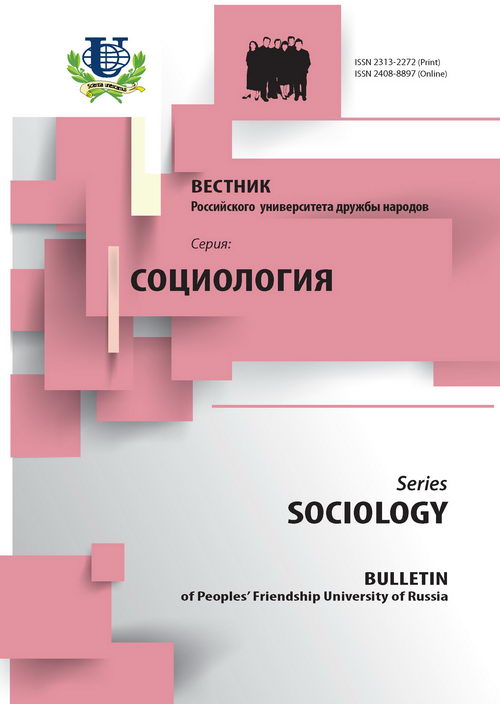On the Dichotomy of Qualitative and Quantitative Researches in Contemporary Scientific Methodology
- Authors: Suvakovic UV1
-
Affiliations:
- University of PristinaTemporary Head Office in Kosovska Mitrovica
- Issue: No 4 (2011)
- Pages: 26-36
- Section: Articles
- URL: https://journals.rudn.ru/sociology/article/view/6184
- ID: 6184
Cite item
Full Text
Abstract
Argumentation in favor of overcoming the long-ago-established dichotomy of qualitative and quantitative scientific research is presented in the article. Proceeding from the view of materialistic dialecticians that every scientific research must deal with a subject, the author assumes that it is impossible to conduct a quantitative research without first establishing the quality to be studied. This also concerns measuring, which is referred only to quantitative procedures in literature. By way of illustration, the author designs two instruments for measuring the successfulness of political parties - the scale and the quotient of party successfulness. On the other hand, even the qualitative analysis usually involves certain quantifications. The author concludes that to achieve methodological correctness the existing dichotomy of qualitative and quantitative research should be considered as overcome and a typology of scientific research including predominantly qualitative and predominantly quantitative studies, depending on the methodological components prevailing in them, should be used.
About the authors
U V Suvakovic
University of PristinaTemporary Head Office in Kosovska Mitrovica
Author for correspondence.
Email: uros-s@eunet.rs
; University of PristinaTemporary Head Office in Kosovska Mitrovica
References
- Berelson B. Content Analysis in Communication Research. Glencoe (ILI): Free Press, 1952.
- Bogdanovic M. Kvantitativni pristup u sociologiji: razvoj, dometi i formalističke jednostranosti. Beograd: Službeni list SFRJ, 1981.
- Briggs H. Hope for Future of Giant Panda. BBC News, 20 June 2006.
- Danilovic N. Specifičnosti izrade kodeksa pojmova i cifara u politikološkim istraživanjima: Doctoral dissertation defended at the Faculty of Political Sciences of Belgrade University under mentorship of Prof. Dr. I. Radosavljevic, 2004.
- Herman Е., Peterson D. Politika genocida. Beograd: Vesna Info, 2010.
- Jovanovic М. Izborni sistemi postkomunističkih država. Beograd: Službeni list SCG, Fakultet političkih nauka, Institut za političke studije, 2004.
- Lazarsfeld P. Main Trends in Sociology. London: George Allen and Unwin, 1973.
- Lazarsfeld P. Qualitative Analysis: Historical and Critical Essays. Boston: Allyn and Bacon, Inc, 1972.
- Macura M. Naselja i stanovnistvo oblasti Brankovica 1455 godine. Beograd: Srpska akademija nauka i umetnosti, Službeni glasnik, 2001.
- Marx K. Kapital. Vol.I. Beograd: Kultura, 1947.
- Milic V. Sociološki metod. Beograd: Zavod za udžbenike i nastavna sredstva, 1996.
- Milosavljevic S., Radosavljevic I. Osnovi metodologije političkih nauka. Beograd: Službeni glasnik, 2000.
- Sartori G. Stranke i stranački sustavi: analitički okvir. Vol.1. Zagreb: Politička kultura, 2002.
- Sesic B. Opšta metodologija. Beograd: Naučna knjiga, 1980.
- Suvakovic U. Instrumenti merenja uspesnosti politickih partija // Zbornik Matice srpske za drustvene nauke. - 2005. - N.118-119. - Pp. 395-403
- Suvakovic U. Metodološke studije o pitanjima sociološkog proučavanja političkih partija. Kosovska Mitrovica: Faculty of Philosophy of the University of Pristina, 2011.
- Suvakovic U. Političke partije i globalni društveni ciljevi. Beograd: Treci milenijum, 2004.
- Termiz Dz., Milosavljevic S. Analitika. Vol.1. Lukavac: Grafit, 2008.
Supplementary files












